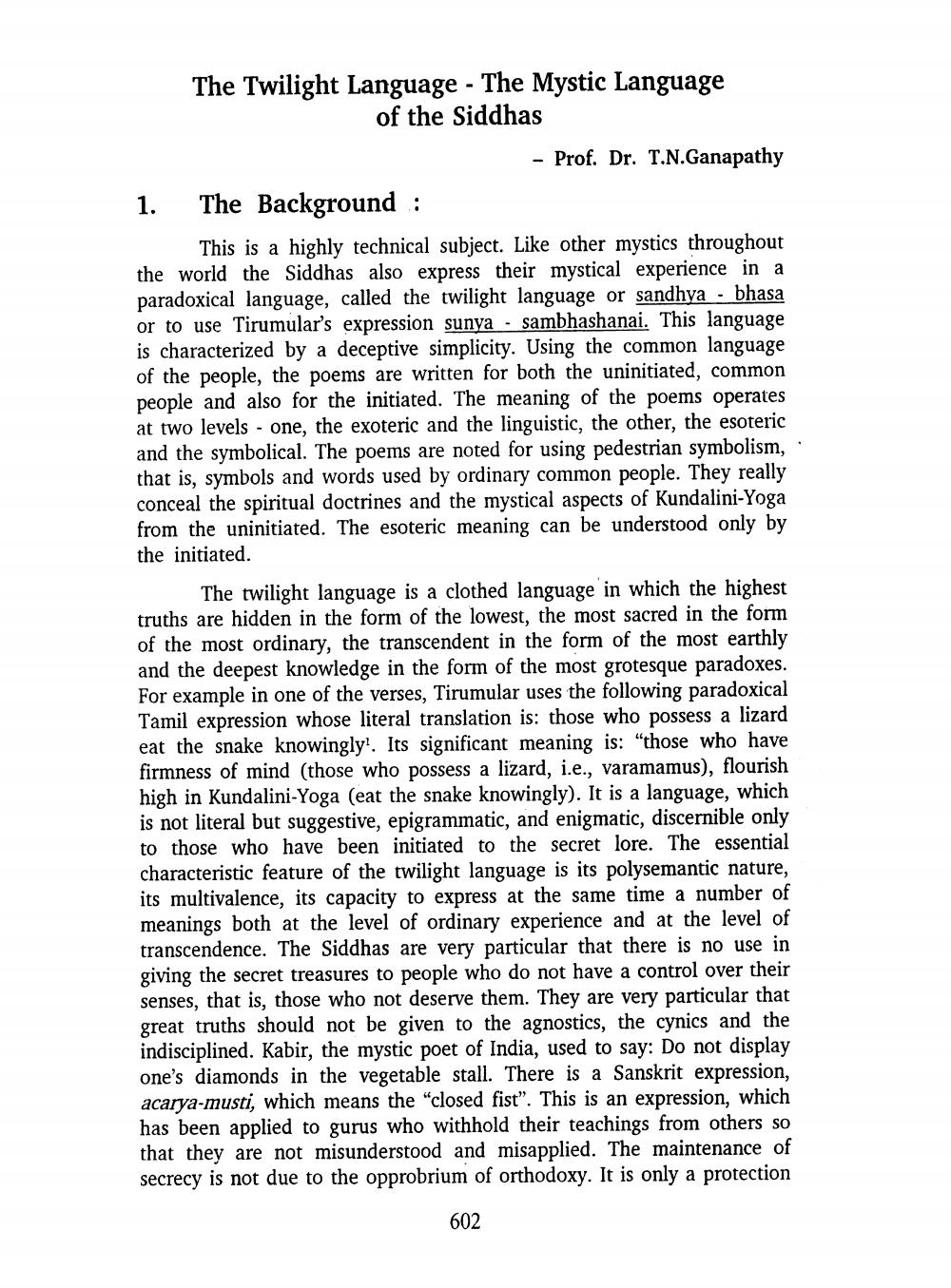________________
The Twilight Language - The Mystic Language of the Siddhas
1.
Prof. Dr. T.N.Ganapathy
The Background :
This is a highly technical subject. Like other mystics throughout the world the Siddhas also express their mystical experience in a paradoxical language, called the twilight language or sandhya - bhasa or to use Tirumular's expression sunya sambhashanai. This language is characterized by a deceptive simplicity. Using the common language of the people, the poems are written for both the uninitiated, common people and also for the initiated. The meaning of the poems operates at two levels one, the exoteric and the linguistic, the other, the esoteric and the symbolical. The poems are noted for using pedestrian symbolism, that is, symbols and words used by ordinary common people. They really conceal the spiritual doctrines and the mystical aspects of Kundalini-Yoga from the uninitiated. The esoteric meaning can be understood only by the initiated.
The twilight language is a clothed language in which the highest truths are hidden in the form of the lowest, the most sacred in the form of the most ordinary, the transcendent in the form of the most earthly and the deepest knowledge in the form of the most grotesque paradoxes. For example in one of the verses, Tirumular uses the following paradoxical Tamil expression whose literal translation is: those who possess a lizard eat the snake knowingly'. Its significant meaning is: "those who have firmness of mind (those who possess a lizard, i.e., varamamus), flourish high in Kundalini-Yoga (eat the snake knowingly). It is a language, which is not literal but suggestive, epigrammatic, and enigmatic, discernible only to those who have been initiated to the secret lore. The essential characteristic feature of the twilight language is its polysemantic nature, its multivalence, its capacity to express at the same time a number of meanings both at the level of ordinary experience and at the level of transcendence. The Siddhas are very particular that there is no use in giving the secret treasures to people who do not have a control over their senses, that is, those who not deserve them. They are very particular that great truths should not be given to the agnostics, the cynics and the indisciplined. Kabir, the mystic poet of India, used to say: Do not display one's diamonds in the vegetable stall. There is a Sanskrit expression, acarya-musti, which means the "closed fist". This is an expression, which has been applied to gurus who withhold their teachings from others so that they are not misunderstood and misapplied. The maintenance of secrecy is not due to the opprobrium of orthodoxy. It is only a protection
602




